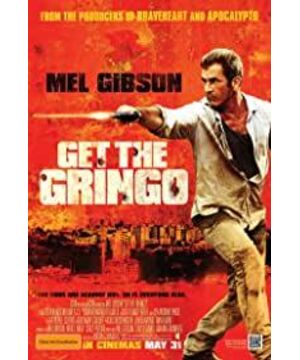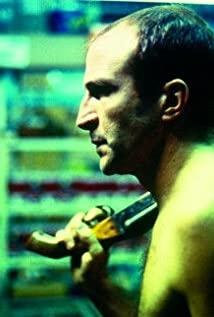But this violent fight also has points. It can be the first drop of blood to fight against the local evil forces, or it can be the bloody vendetta among the gangs that the small gangsters like the big smoker unintentionally get involved. Personally, I feel that the biggest problem with this film is that while Mel Gibson tried the latter as the overall story structure this time, he still couldn't let go of the brand-style lone hero's "smelly air". As a result, many plots that clearly require plot reversal and logical effort, but suddenly jump to the old path of personal heroism inexplicably. For example, in the section of persuading Boss Mo to let himself go to kill Boss America, the life-saving excuses are simply perfunctory. Why can't the two parties sit down and get things clear first, and then decide whether to fight to the point of death? In fact, it's not that the bosses didn't have a choice, but Old Mel didn't. If liver failure does not approve of the rhetoric, the protagonist will be killed immediately, and a series of incredible heroic feats (disguise, deception, grenade assassination) will naturally have no chance to be staged.
Orthodox British black film is not like this. The protagonist may become the initiator of the gang conflict, but it will never be the leader of the two factions in the final fight or even the end. It is usually fate or so-called poetic justice that dominates this process. Obviously, arrogant Americans do not believe in fate. So no matter whether the story starts in anti-hero mode or not, it will eventually lead you to the heroic Hollywood theme.
There is another relatively hidden aspect in the film: the child is on the operating table! From a narrative point of view, it should be said that there are not many places to talk about this scene. It is nothing more than a variant of "last-minute salvation". But it is much more interesting from the perspective of event causality. That's right, the child was regarded by the boss as the only living liver donor before the protagonist was thrown into the black jail. But in the end he was pushed onto the operating table so quickly and his mother was tortured by electric shocks. Can the root cause of these tragedies be indirectly attributed to the protagonist’s imprisonment and the two million dollars he brought? If you can't get rid of the relationship more or less, and even fail to catch up at the last minute, the child will really die on the operating table, and the tone of the whole story will be completely overturned! Subverted to an important branch of French crime films.
In the ideology of this branch, character creation never deliberately pursues an "anti-hero" model that is more in line with the aesthetic taste of the modern public. The protagonist is neither cynical nor profitable. On the contrary, he is profoundly professional, sharp-minded, jealous (when working as a policeman), resolutely defending traditional values, and there is no problem of strictly abiding by the moral bottom line, because he has no tendency to anti-secular and stereotyped. But it happened that the actions of such a person ultimately cost the innocent and good to their lives. I have seen many such works starring Paul Belmondo and Rio Vanduula. The most recent one was about the police officer Vandura and his fledgling female partner trying their best to search for a hidden gangster who appeared as a witness. In the end, he was found and had to testify in court, but he was later killed by the gang. Only a lonely little girl who is less than ten years old and needs to take medicine every day to survive is left...
View more about Get the Gringo reviews











